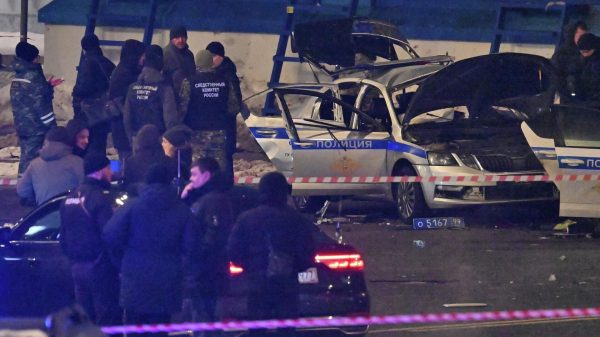Aung San Suu Kyi’s party will return to power for another five year term after securing a widely predicted victory in what is the country’s second general election since the end of full military rule.
According to the Union Election Commission, Aung San Suu Kyi’s National League for Democracy has won 346 of the 412 seats declared so far, a result driven by her continued status as an icon of democracy in the country – despite international outrage at her treatment of the Rohingya.
Myanmar’s military-backed opposition, which has performed poorly, said on Tuesday there had been “many contentious events” during the election, though no evidence was provided to support these claims.
International and local observers have not reported any major irregularities.
There was little doubt that the NLD, which had already claimed victory on Monday, would be returned to power. Aung San Suu Kyi, who spent around 15 years under house arrest on the orders of the military junta, remains hugely popular among the Barmar majority.
On social media this week, videos showed her supporters gathering on the streets to celebrate late into the night, despite a curfew that is supposed to be in place to prevent the spread of the coronavirus.
There are concerns the election could escalate infections, and opposition parties say coronavirus restrictions, which limited campaigning in some areas, have not been enforced fairly.
It is feared the election will further entrench divisions within the country, particularly resentment within minority communities, who once considered Aung San Suu Kyi an ally but now feel betrayed by her government.
Voting was cancelled for an estimated 1.5 million voters in areas dominated by ethnic minority communities, apparently due to security concerns. In addition, about 1.1 million Rohingya – who remain in camps in both Myanmar and Bangladesh, where many fled following a brutal army crackdown in 2017 – continue to be denied citizenship and are disenfranchised.
The Fortify Rights group said earlier this week it was concerned about the arrests of activists and a crackdown on free expression and assembly. “A core principle of elections under international law is universal and equal suffrage and that is not what took place yesterday,” Ismail Wolff, regional director of Fortify Rights, said in a statement released on Monday.
Myanmar soldiers tell of Rohingya killings, rapes and mass burials
Read more
Many had hoped that Aung San Suu Kyi’s election in 2015 would bring greater democratic freedoms, but her critics say she has failed to deliver on reforms or bring stability. While she promised to deliver peace, conflict in parts of the country, including Rakhine state, has only intensified, and anger among minorities has been heightened.
“After five years in power the NLD is seen as a party of the Burman Buddhists in the centre – governing for them and in their interests,” said Richard Horsey, an independent political analyst based in Myanmar.
The country’s first-past-the-post electoral system, where the majority of seats are in Burman heartland, means the odds are stacked against minorities, who feel increasingly disenfranchised. “If so early in Myanmar’s transition a big chunk of minority communities feel ‘this whole electoral democracy thing, it’s not going to work for us,’ then that’s very dangerous,” Horsey added.
Under the constitution, a quarter of parliamentary seats are reserved for the military, with which the NLD has an uneasy relationship.
There are questions over what will happen when Aung San Suu Kyi, who is 75, no longer dominates politics in Myanmar.
“While she’s around things are pretty predictable. That means it is very bad for the Rohingya, and not too bad in terms of political stability at the centre of the country and relations between the military and the civilian government – which are tense and awakward, but not mutually destructive,” said Horsey. “If something were to happen to Aung San Suu Kyi, all bets are off.”





















































Свежие комментарии